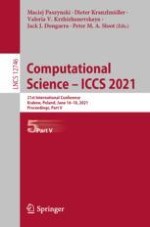2021 | OriginalPaper | Chapter
Hybrid Machine Learning for Time-Series Energy Data for Enhancing Energy Efficiency in Buildings
Authors : Ngoc-Tri Ngo, Anh-Duc Pham, Ngoc-Son Truong, Thi Thu Ha Truong, Nhat-To Huynh
Published in: Computational Science – ICCS 2021
Publisher: Springer International Publishing
Activate our intelligent search to find suitable subject content or patents.
Select sections of text to find matching patents with Artificial Intelligence. powered by
Select sections of text to find additional relevant content using AI-assisted search. powered by
